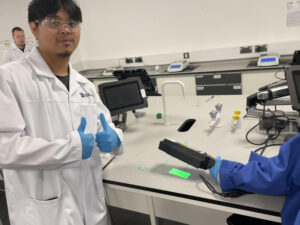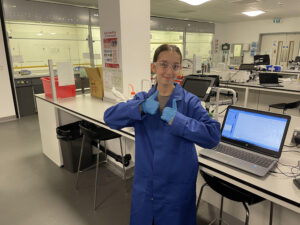Recently, some of our Year 12 student embarked on an exciting educational journey to the University of Wolverhampton, where they completed on of their A-level practicals: the synthesis of benzoic acid. This visit offered a unique opportunity to experience university level laboratory facilities and gain hands-on experience with advanced analytical techniques.
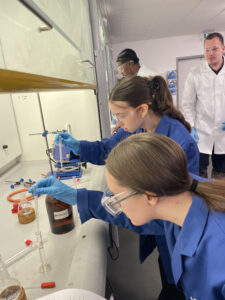
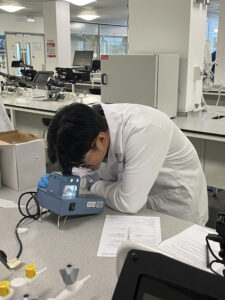
The synthesis of benzoic acid is a fundamental experiment in organic chemistry, providing a blend of theoretical knowledge and practical skills. For our students, this was a chance to step into the sophisticated environment of a university’s School of Pharmacy. The state-of-the-art facilities at Wolverhampton provided an ideal setting for them to develop their practical skills and deepen their understanding of the underlying chemistry concepts.
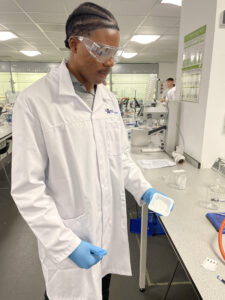
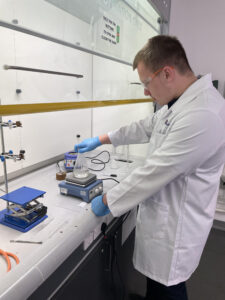
During their visit, the students were introduced to several advanced analytical techniques, essential tools for any budding chemist. These included:
- Melting Point Apparatus: Determining the melting point of benzoic acid was a crucial part of the experiment. Accurate measurements of melting points helps in identifying the purity and quality of synthesised compounds. Students learnt how to operate the apparatus and interpret the results, gaining insight into one of the basic yet critical methods of chemical analysis.
- Thin Layer Chromatography (TLC): TLC is a simple, quick and effective method for monitoring the progress of chemical reactions and assessing the purity of compounds. The students were able to use this technique to separate and identify the components of their synthesised product. This hands-on experience helped demystify the process and importance of chromatography in chemical research and industry.
- Infrared (IR) Spectroscopy: Perhaps the most sophisticated of the techniques introduced, IR spectroscopy allowed the students to identify functional groups in their synthesized benzoic acid by analysing the molecular vibrations. Understanding how to read and interpret IR spectra is a vital skill for chemists, and this experience provided a solid foundation for future studies.
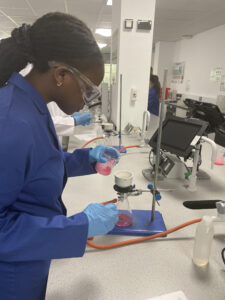
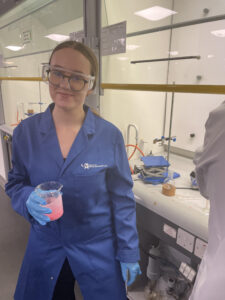
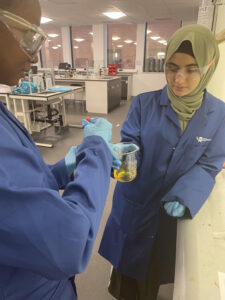
The visit to the University of Wolverhampton was an inspirational experience that showcased the exciting possibilities of studying chemistry at a higher level. The students not only honed their practical skills but also got a taste of university life and the cutting-edge research environments they can aspire to be part of in the future.
Our Year 12s experience at the University of Wolverhampton will undoubtedly serve as a catalyst for their future academic and professional endeavours in the world of chemistry.
